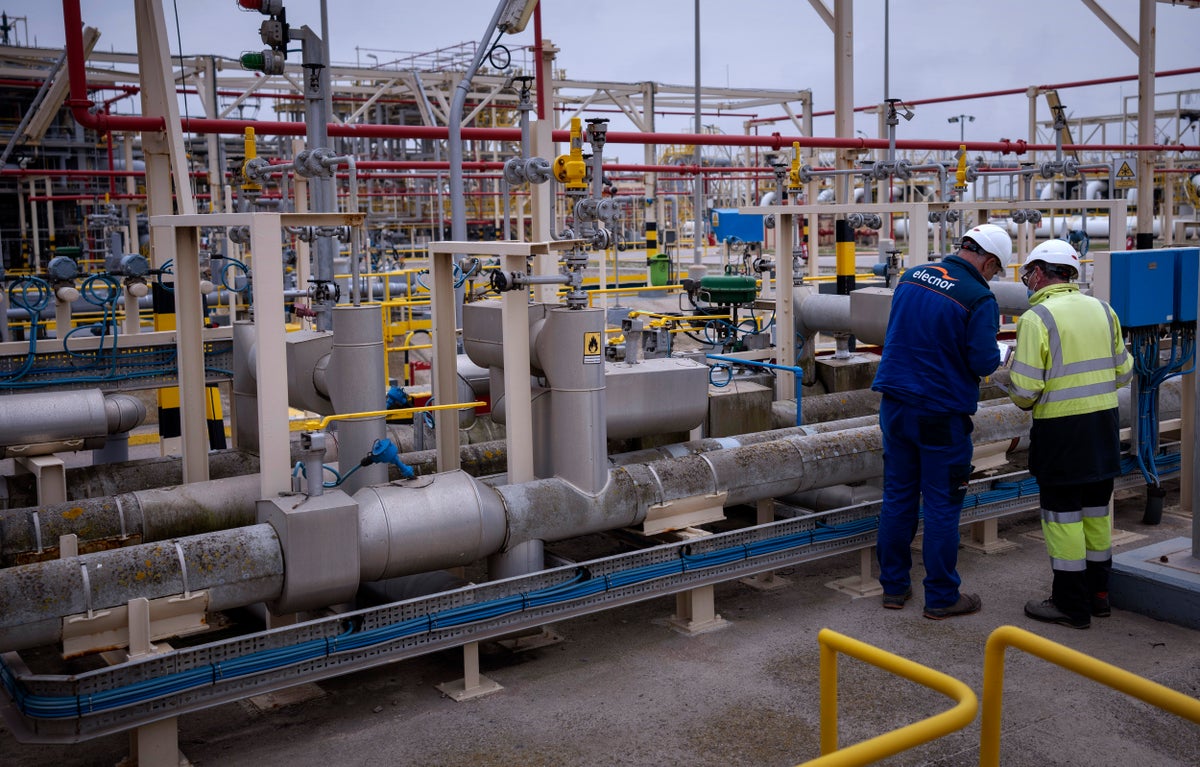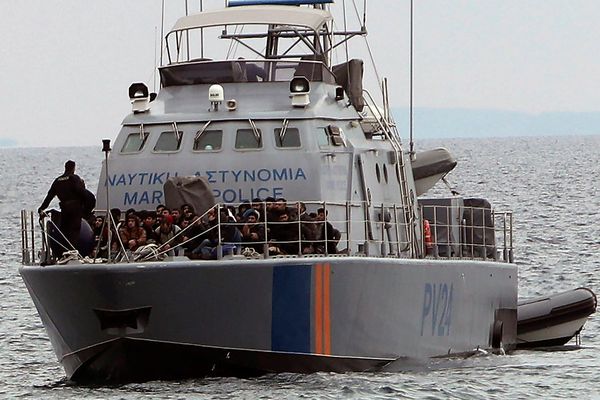
Natural gas and electricity prices in Europe have plunged from summer peaks thanks to mild weather and a monthslong scramble to fill gas storage ahead of winter and replace Russian supplies during the war in Ukraine. It's a welcome respite after Russia slashed natural gas flows, triggering an energy crisis that has fueled record inflation and a looming recession.
Yet experts warn it's too soon to exhale, even as European governments roll out relief packages for people struggling with high utility bills and work on longer-term ways to contain volatile gas and electricity prices that have shrunk household budgets and forced some businesses to shut down.
Uncertainties include not only the weather but how responsive people will be to appeals to turn down their heating and how much demand there will be from Asian economies for scarce energy supplies. And the war a few hours east is a cauldron of possible unpleasant surprises that could cut energy supplies needed for electricity, heating and factory work and send prices sharply higher.
Persistent unknowns are leaving energy-intensive businesses jittery. They are appealing to governments to help them and their customers weather the energy storm so that disruptions in supplies of everything from glass to plastics to clean hospital sheets do not cascade through the economy.
“We must remember that we are still in a tense situation — an economic war between the European Union and Russia in which Russia has weaponized energy supplies,” said Agata Loskot-Strachota, an energy policy expert at the Center for Eastern Studies in Warsaw, Poland.
The good news is natural gas prices on Europe's TTF benchmark fell on Monday below 100 euros per megawatt hour for the first time since June. Electricity prices also fell.
But there's no sense of relief for business owners like Sven Paar, whose commercial laundry in the town of Wallduern will use around 30,000 euros worth of natural gas this year. He runs 12 heavy-duty machines that can wash eight tons of hospital and hotel bedsheets and restaurant tablecloths each day.
His local utility says the bill is rising to 165,000 euros next year. On top of that, Paar says he's unsettled by a lack of clarity from the German government on whether laundries like his would be considered essential to the economy and spared cutbacks in case of state-imposed rationing. Reports that the utility regulator is working on sorting out the question aren't enough.
“The problem is, everyone has heard something, and just hearing something doesn't bring me any planning security,” he said. A letter he sent to the regulator went unanswered.
“That's the problem, you hope every day that you don't get a call from someone that says, ‘Tomorrow you aren't getting any gas,'” he said.
Germany’s hospital association has taken up the issue on behalf of laundries like his, saying hospitals have mostly outsourced their laundry services and would run out of sheets and surgical drapes within a few days without them.
The German government is working to roll out plans to cap gas prices for hard-hit businesses. The association representing smaller businesses says its understanding is that the government would focus any possible rationing on the 2,500 largest gas users in Germany and mostly spare businesses the size of Paar's.
Helping ease the possibility of rationing is Europe's underground storage getting filled to 94% compared with 77% at this time last year, which energy expert Loskot-Strachota called “quite a success.” A big assist has come from mild weather across Europe, with Warsaw, for example, a relatively balmy 18 degrees Celsius (64 degrees Fahrenheit) on Monday.
Germany, once heavily dependent on Russian gas, has filled storage to 97% of capacity, France to 99% and Belgium and Portugal both to 100%. That was achieved by importing record quantities of liquefied natural gas, or LNG, which comes by ship from the U.S. and Qatar instead of by pipeline from Russia, and by increasing pipeline supplies from Norway and Azerbaijan.
The scramble to line up more LNG has led to a backup of tankers off the coast of Spain, a major processor, as orders collide with reduced demand and limited capacity at the country's import terminals, which turn boatloads of supercooled LNG back into gas that then flows to homes and businesses.
Spanish gas company Enagas warned last week that it may have to delay or stop tankers from unloading LNG because its storage was almost full. Vessel positioning maps showed at least seven LNG tankers anchored close to Spanish shores Tuesday, though it wasn't clear how many were waiting to unload.
Despite an abundance of LNG and falling prices, Loskot-Strachota said the energy situation remains volatile. She warns that prices for gas to be delivered in December and the 2023 winter months are higher than prices now.
Russian gas has dwindled to a trickle through pipelines in Ukraine and under the Black Sea to Turkey, but losing even the small amount that remains could roil markets. Moscow has blamed the reductions on technical reasons or a refusal to pay in rubles, while European leaders call it blackmail for supporting Ukraine.
EU governments also have been working on proposals including buying gas as a bloc or limiting price swings to ease the energy crisis, although the measures would largely affect next year’s purchases.
Gas use is down 15% in Europe, but that is mostly from factories simply abandoning production that has become unprofitable.
“This is dangerous — this hurts the economy, this hurts Europe,” Loskot-Strachota said.
Whether households will join businesses in cutting back by lowering thermostats and turning off lights cannot be determined until the cold weather comes in earnest. Russia's willingness to destroy Ukrainian heating and electrical plans shows that Russia is ready to escalate despite battlefield defeats.
The market also is less flexible because gas reserves will be increasingly used as day-to-day base fuel for heating and generating electricity, rather than as a “swing” fuel during times of peak demand such as cold snaps.
“Every event, every problem, weather problem, Russia problem, becomes a factor which sends prices very very high,” Loskot-Strachota said. “I’m very happy that we’re in a calm situation now, but it is nothing that will last for the whole winter.”
___
Raquel Redondo contributed from Madrid.







